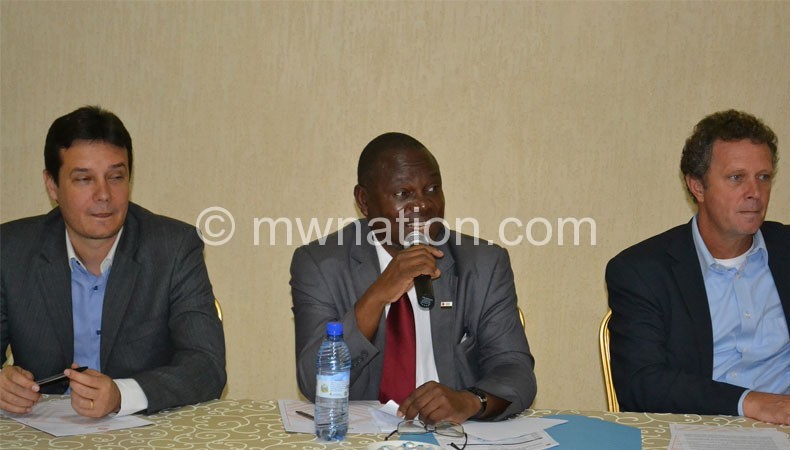Govt, UNDP launch K1.5bn early warning systems project

Malawi Government has rolled out a four-year environmentally related project which aims at strengthening climate information and early warning systems to help communities develop resilience and adaptation to climate change.
The project, which is part of Eastern and Southern African programme involving 10 countries, will benefit from a $3 600 000 (about K1.5 billion) from the Global Environmental Policy (GEF), through UNDP, and will be implemented from this year.
Speaking during the project’s inception workshop in Lilongwe on Wednesday, principal secretary and commissioner for Disaster Management Affairs Jeffrey Kanyinji said the country’s early warning systems are neither integrated nor comprehensive, something not in line with disaster preparedness.
“In fact, some of the equipment and process for gathering early warning data are outdated, dysfunctional and insufficient. Apart from poor system of disseminating early warning information to communities, there is also lack of practical capacity at the community level on the use of early warning information,” he said.
Kanyinji noted that the project will help address some of these challenges.
“This is important because effective early warning system can result in reduced number of households affected and household properties damaged due to disasters, thereby reducing the amount of resources government spend in response to provide relief assistance to affected population,” he said.
UNDP assistant resident representative Jan Rijpma said: “Now that we have developed and started this project, it is important to immediately start with the implementation and show results.
“Not only because of its vital importance in providing crucial information and warnings but we need to show as partners that we can indeed deliver the programmes that donors are entrusting us with.”





